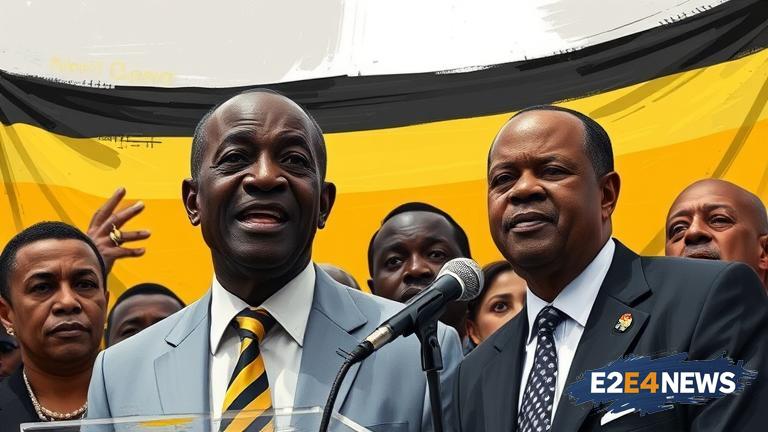The presidential election in Uganda, which took place on January 14, 2021, has been marred by controversy and debate. The incumbent president, Yoweri Museveni, was declared the winner with 58.6% of the vote, while his main opponent, Bobi Wine, received 34.8%. However, Wine and his supporters have disputed the results, citing allegations of vote rigging and intimidation. The election was marked by a number of irregularities, including the arrest of opposition candidates and their supporters, as well as the shutdown of social media platforms. The Ugandan government has denied any wrongdoing, but the international community has expressed concerns about the fairness and transparency of the election. The European Union and the United States have called for an investigation into the allegations of vote rigging and human rights abuses. The African Union has also expressed concerns about the election, citing the need for greater transparency and accountability. Despite the controversy, President Museveni has been sworn in for a sixth term, sparking widespread protests and demonstrations. The opposition has vowed to continue fighting for change, with Wine calling for a peaceful revolution. The situation in Uganda remains tense, with many citizens feeling disillusioned and disenfranchised. The international community is watching the situation closely, with many calling for greater democracy and human rights in the country. The election has also highlighted the need for greater transparency and accountability in Ugandan politics. The use of social media has been a key factor in the election, with many citizens using platforms to express their opinions and mobilize support. However, the shutdown of social media platforms has raised concerns about censorship and the suppression of free speech. The Ugandan government has defended its actions, citing the need to maintain stability and security. But many citizens feel that the government is trying to silence them and suppress their rights. The situation in Uganda is a complex one, with many different factors at play. The country has a long history of political instability and human rights abuses, and the recent election has done little to alleviate these concerns. The international community must continue to monitor the situation closely and call for greater democracy and human rights in Uganda. The people of Uganda deserve a free and fair election, and it is the responsibility of the international community to support them in their struggle for democracy. The recent election has also highlighted the need for greater support for democracy and human rights in Africa. The African Union and other regional organizations must do more to promote democracy and human rights, and to hold governments accountable for their actions. The situation in Uganda is a wake-up call for the international community, and it is imperative that we take action to support the people of Uganda and promote democracy and human rights in the region. The future of Uganda hangs in the balance, and it is up to the international community to ensure that the country is able to transition to a more democratic and stable government. The people of Uganda are calling for change, and it is our responsibility to support them. The recent election has been a setback for democracy in Uganda, but it is not a defeat. The opposition will continue to fight for change, and the international community must continue to support them. The situation in Uganda is a reminder that democracy is a fragile thing, and that it must be constantly nurtured and supported. The international community must do more to promote democracy and human rights in Uganda, and to hold the government accountable for its actions. The people of Uganda deserve a better future, and it is our responsibility to help them achieve it.
